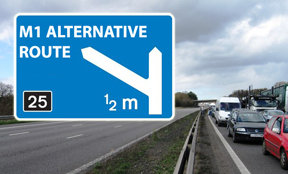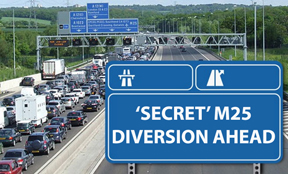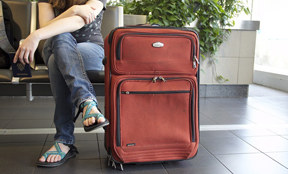
How to spot unmarked police cars and if they are real or fake
Is the car behind you a real unmarked UK police car or a fake undercover vehicle being driven by criminals? Here's a guide to help spot if the unmarked police car officer trying to stop you is real or fake - and what unmarked police car laws in the UK say.
 Motorists and police forces have reported cases of fake cop cars attempting to stop vehicles – with a worrying trend of lone women being targeted on quiet country roads, as reported on the Mirror.co.uk.
Motorists and police forces have reported cases of fake cop cars attempting to stop vehicles – with a worrying trend of lone women being targeted on quiet country roads, as reported on the Mirror.co.uk.
If you regularly drive alone late at night, make sure you read this guide to spotting what could be a counterfeit cop car looming in your mirrors.
How to tell if a fake police car is pulling me over?
It's important to stop if a cop signals you to pull over, but with many undercover vehicles on the road it's easy for crooks to impersonate legitimate officers. The following tips will help you decide if the car is a genuine vehicle or fake police car - and how to stay on the right side of the law if you can't decide.
What type of fake police cars will crooks use?
It’s almost certain that anyone attempting to pull you over in a fully liveried police car will be genuine. Obtaining a fully marked car will be expensive – and be more likely to leave crooks at risk of being spotted by real officers.
Instead, the modern-day criminals are more likely to pose as undercover officers in a smart vehicle. Think nearly new Ford Mondeo headlights flashing in your rearview, rather than tatty old Ford Focus.
Do police have to be in uniform to stop my car?
Officers can pull you over even if they are not in uniform, but if they’re not and you have suspicions about their validity as bona-fide officers, then wait until you’re in a well-lit area with others around. Just put your hazard lights on and drive calmly until you can stop.
The Road Traffic Act 1988, Section 163, says: A person driving a [F1mechanically propelled vehicle] on a road must stop the vehicle on being required to do so by a constable in uniform [F2or a traffic officer].
Along with your concerns about being pulled over in a secluded location, the above legislation could help if the ‘cop’ who was not wearing uniform turned out to be genuine.
What to look out for if worried a fake police car is pulling you over
If a car is flashing you with headlamps, then be wary as genuine police cars will always turn on their blue strobe lights when stopping a vehicle.
You are not obliged to stop just because a car simply flashes its headlamps – and could be anything from a fake cop to someone angry at a perceived driving incident. The Highway Code backs this up.
If the ‘flasher’ persists, drive cautiously on, ensuring your doors are locked and that you have easy access to your mobile phone if safe to do so.
Do not stop until you reach a ‘safe’ location that is well-lit and in view of other pedestrians or other motorists. Look out for locations that are manned or have 24-hour CCTV. These include the likes of petrol stations, town centres and taxi ranks.
Please share how to spot a fake police car with friends
Remember, these incidents are rare, but as the tragic case of Sarah Everard sadly highlighted, being prepared could put you or your loved ones in a far better position to deal with the situation. Please share with friends who often drive alone.
Most read motoring content
Take a look at more of our top motoring-related content here...
- Will I get a speeding ticket after being flashed
- Do I need an international driving permit for France and Spain
- Alternative routes for beating jams on the M25
- Alternative routes for the M1 motorway
- Alternative routes for the M6 motorway
- How old are my tyres - find out instantly here
- What are the black dots on my windscreen for?
- Are my sunglasses legal for driving?
So if the possibly fake police car has flashing lights I should stop?
It’s also possible to simply load car strobe lights to a phone or tablet by logging on to sites such as YouTube. These can look convincing when placed on the dashboard of a car. Here’s one we found on the video sharing site.
Genuine police-vehicle lights will be of high-quality and powerful. A manual rotating light could be a warning flag, as genuine units used for stip are likely to be of a strobe type.
Do police need a reason to stop my car?
Not at all. Officers have the right to stop any vehicle and demand to see the driver’s documents – or have them presented at a police station within a certain amount of time.
So, the fact you’ve not knowingly committed an offence will not help when it comes to deciding if you should stop when told to do so by ‘cops’.
What should I do if I'm not sure if it is genuine police officers trying to stop me?
Advice from the many police forces is simple – don’t stop if you have genuine concerns!
Don’t panic and speed off, though. Just switch on your hazard lights to indicate you’ve acknowledged the vehicle and drive on at reduced speed until you can find a well-lit and populated location.
Keep your doors locked and ensure you have easy access to a mobile phone if safe to do so. Genuine officers will understand what is going on and should follow you in a relaxed and patient manner.
Can I use my mobile phone to call police while driving?
Yes! Despite tough laws bringing a minimum of six penalty points and the prospect of a £200 fine for using a mobile while driving, there is an exception for motorists who can’t stop.
Official guidance states: ‘You can use a hand-held phone if you need to call 999 or 112 in an emergency and it’s unsafe or impractical to stop.’
This would include if you feel genuinely at risk from a fake cop trying to stop you – and calling 999 or 112 in this situation would be highly unlikely to attract a penalty.
Trying to use this defence fraudulently, however, is likely have serious implications.

Should I call 999 or is it wasting police time?
Yes! If genuinely worried you should call 999 and ask for the police. You will not be looked upon as a timewaster and your call will be taken seriously.
The trained operator will be able to get information to confirm if the ‘stop’ is genuine and what to do if not. They will also dispatch genuine officers to your aid.
Where should I stop if a ‘police car’ persists in following me?
Carry on driving at a safe, slow pace with your hazard lights on. Look out for a well-lit location to stop where there are plenty of other people.
Areas such as petrol stations are ideal as these are typically covered by extensive CCTV. Any crook will be well aware of this and carry on driving. Other 24-hour locations such as hospital emergency departments and taxi ranks could also offer a safe, populated location.
If you do stop in this situation and the car turns out to be a genuine police vehicle, calmly and politely explain why you did not immediately pull over.
What should I do if I have to stop in a secluded location on my own?
Remain in the car, lock the doors and do not fully open the window. Ask to see the ‘officer’s’ identification before even considering opening the car.
If the location is unsafe, do not stop. A genuine officer would not risk the safety of you, your car’s occupants or other road users.
Be polite when speaking to the ‘officer’ and only open the door and get out if entirely convinced that he or she is legitimate.
Make sure you phone 999 as soon as possible if you feel at all at risk.
 Related content on this website.
Related content on this website.
Please share how to spot a fake police car with friends
Remember, these cases are rare, but as the tragic case of Sarah Everard has highlighted, being prepared couldput you in a far better position to deal with the situation. Please share with friends who often drive alone.





